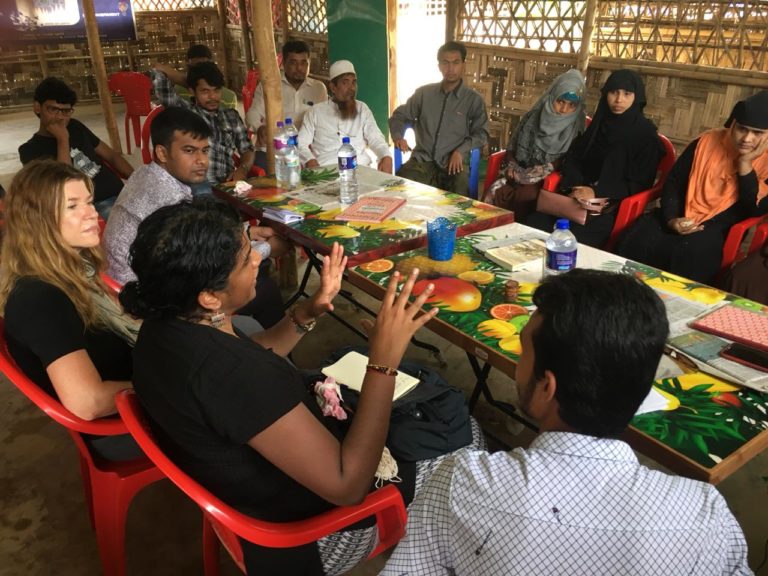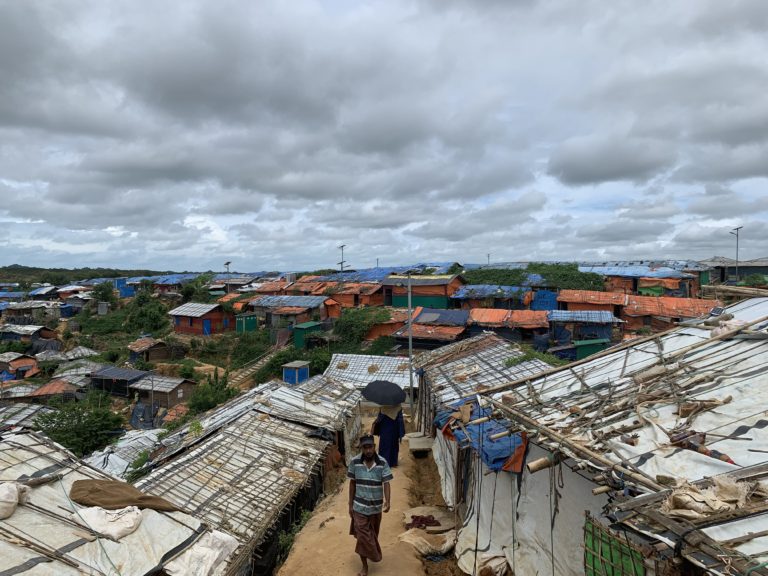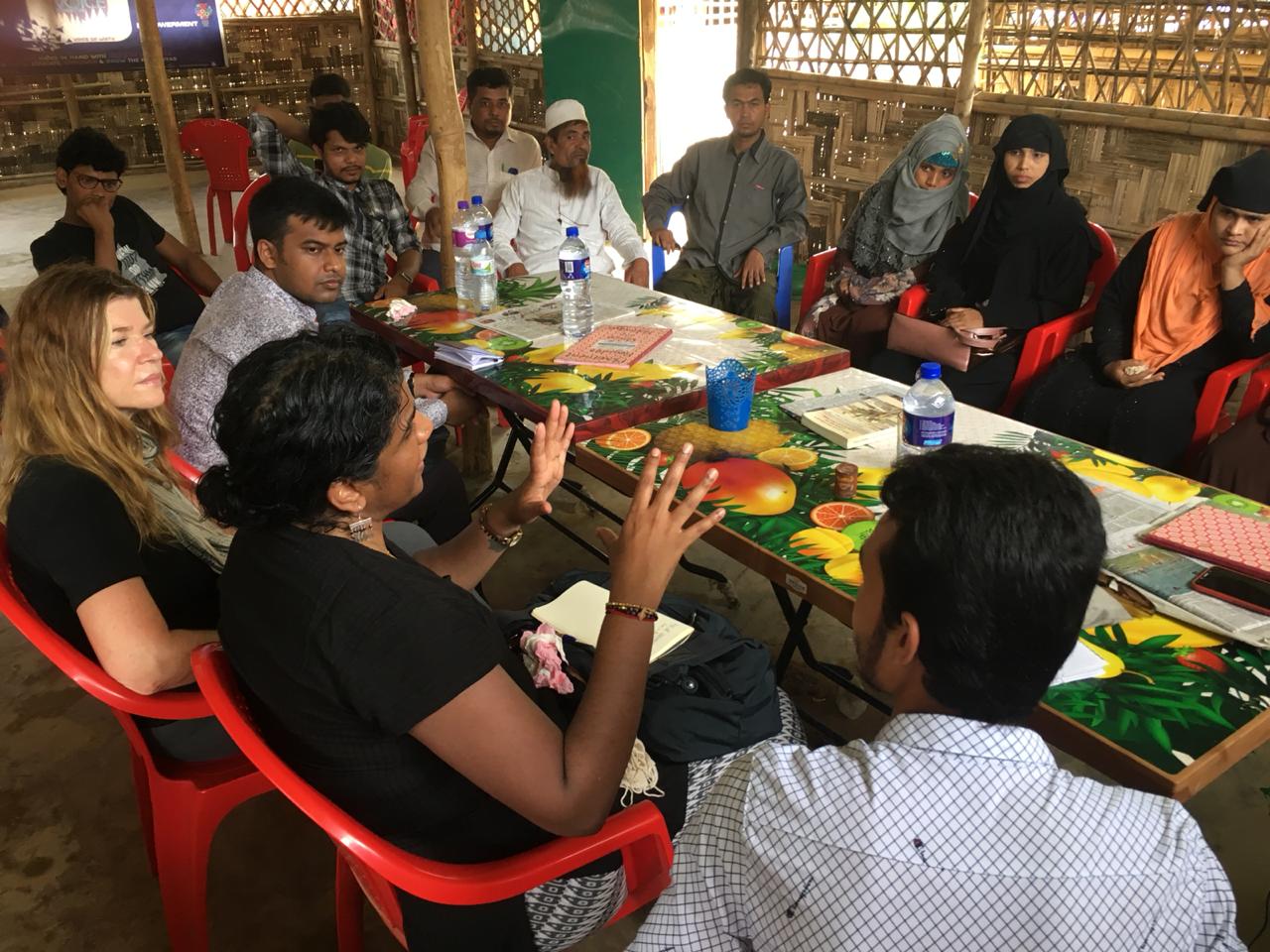Economic, Social and Cultural Rights in Transitional Justice
For this project, formally titled, “Understanding and Addressing Economic, Social and Cultural Rights in Transitional Justice,” the GIJTR created concrete assessment reports providing evidence of the need to include Economic, Social and Cultural Rights (ESCR) violations in transitional justice processes and in advocacy campaigns led by communities. The project highlights the importance of a victim-centered approach to transitional justice and the significance of victims’ rights to sustainable peace.

Context
Structural exclusion, segregation, marginalization and poverty that disproportionately affect minority ethnic groups, indigenous populations, women and certain regions of a country are the drivers for many conflicts. However, most transitional justice processes emphasize acts of violence that took place during a conflict as the sole target of their investigations, ignoring root causes that drive conflict and large-scale violations of economic, social and cultural rights (ESCR). In these situations, an effective and peaceful post-conflict transition is unlikely without properly addressing ESCR violations.
One way that transitional justice processes can contribute to sustainable peace and non-recurrence of conflict is by addressing past violations of ESCR, defined by contemporary human rights law as those human rights that relate to the conditions necessary to meet basic needs such as food, water, housing, education and healthcare. Transitional justice processes can act as a diagnostic lens on such violations and their relationship to conflict and propose approaches such as institutional reform and broader administrative and policy approaches that can address them to provide guarantees of non-repetition.
Project Details
The Global Initiative for Justice, Truth and Reconciliation Consortium facilitated a 12-month project in 2020 designed to promote the inclusion and integration of violations in ESCR in transitional justice processes. Based on desk research and analysis of legal and policy frameworks, the GIJTR created a compilation of the form and impact of ESCR violations, potential transitional justice responses based on evidence of what works, and the challenges that need overcoming for a successful inclusion of ESCR violations in transitional justice. Using this research, the GIJTR developed a first-of-its-kind standardized assessment toolkit to assess ESCR violations and root causes.
The GIJTR identified local CSO partners who implemented the assessment tool in two pilot locations, Gambia and Indonesia, with training and technical assistance from Consortium partners.When assessments were completed, local CSO partners and participating communities from the two countries were gathered for a three-day workshop, where they shared discussed assessment findings and recommendations and ultimately finalized the assessment tool. During the piloting of the assessment tool through local organizations in Indonesia and The Gambia, researchers were encouraged to identify interventions aligned to the needs identified by communities. Four local organizations were then supported to carry out these interventions through a subgrant process. In addition to producing assessment reports that provide compelling evidence for the need to include ESCR violations in transitional justice processes, the project also resulted in the formation of a comprehensive yet approachable set of 10 guidelines on the incorporation of ESCR in transitional justice. These guidelines offer a practical step towards conceptualizing transitional justice processes as inherently necessary to addressing ESCR violations while centering the significance of victims’ rights to sustainable peace.
Project Objectives
Build the capacity of transitional justice stakeholders to address the root causes of conflict and ESCR violations
Expand the base of evidence available to transitional justice stakeholders and communities on the potential of transitional justice mechanisms to address root causes of conflict and ESCR violations, including the different approaches that could be taken, within a framework of international human rights law, and obstacles and challenges that should be overcome for a successful and an adequate inclusion of ESCR violations.
Provide recommendations and criteria to stakeholders on this subject
Formulate recommendations and criteria for inclusion of ESCR violations in transitional justice.
Raise awareness about ESCR violations in transitional justice processes
Raise awareness among transitional justice policymakers and other stakeholders about the importance of integrating relevant ESCR violations in transitional justice.


